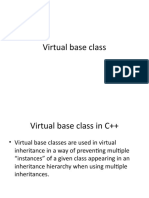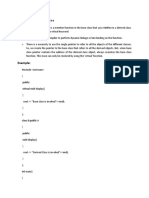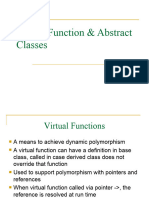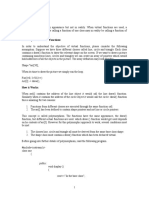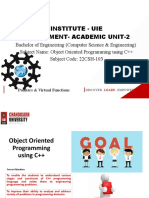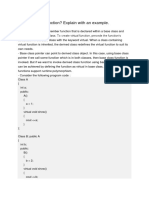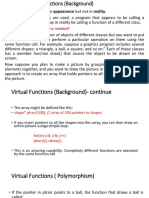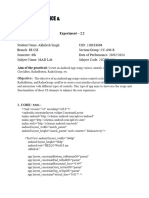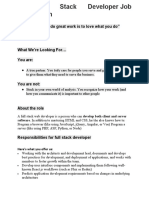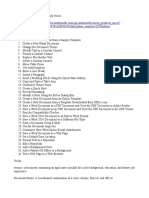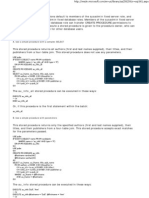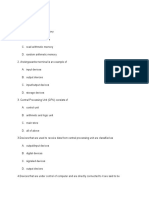0% found this document useful (0 votes)
12 views7 pagesPure Virtual Functions and Abstract Classes in C
The document explains the concept of pure virtual functions and abstract classes in C++. An abstract class cannot be instantiated and must have at least one pure virtual function, which derived classes must implement. It also discusses the ability to use pointers and references of abstract class types and the implications of not overriding pure virtual functions in derived classes.
Uploaded by
gp3837730Copyright
© © All Rights Reserved
We take content rights seriously. If you suspect this is your content, claim it here.
Available Formats
Download as PDF, TXT or read online on Scribd
0% found this document useful (0 votes)
12 views7 pagesPure Virtual Functions and Abstract Classes in C
The document explains the concept of pure virtual functions and abstract classes in C++. An abstract class cannot be instantiated and must have at least one pure virtual function, which derived classes must implement. It also discusses the ability to use pointers and references of abstract class types and the implications of not overriding pure virtual functions in derived classes.
Uploaded by
gp3837730Copyright
© © All Rights Reserved
We take content rights seriously. If you suspect this is your content, claim it here.
Available Formats
Download as PDF, TXT or read online on Scribd
/ 7

